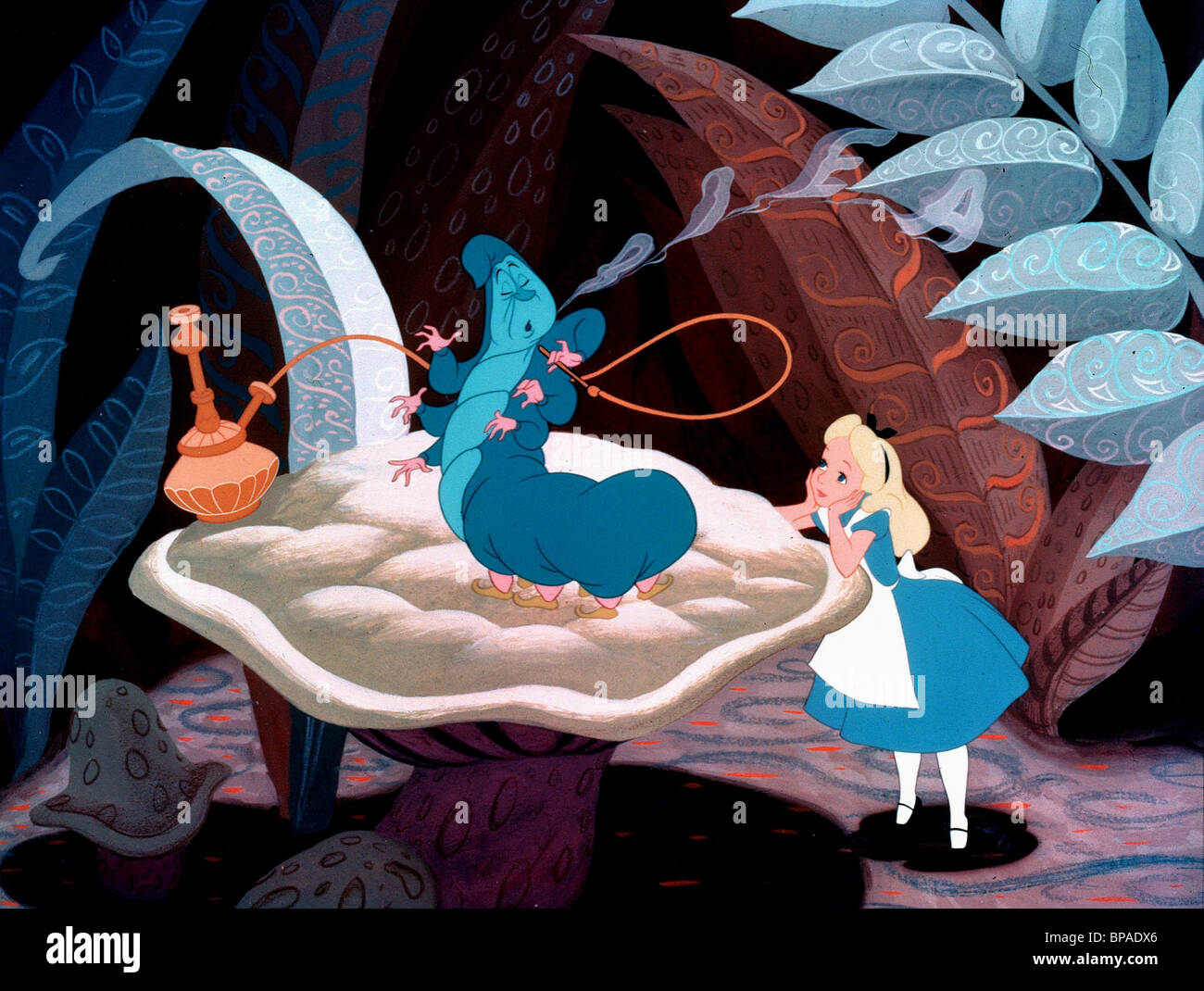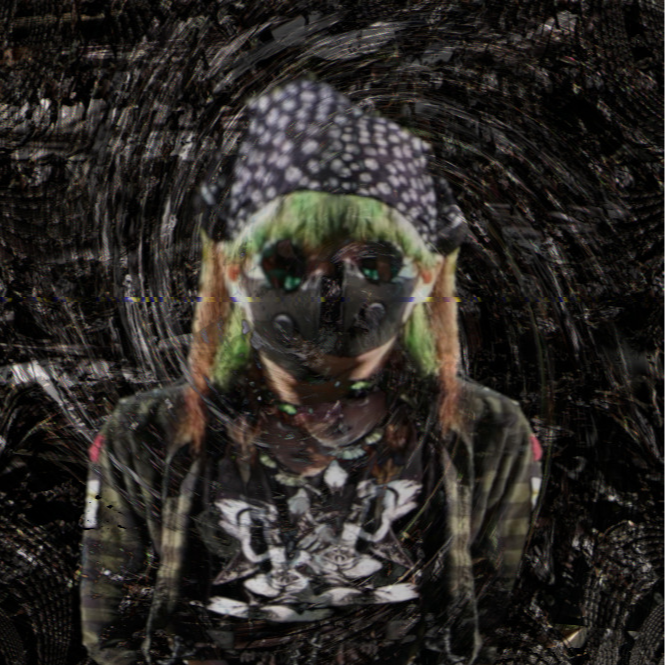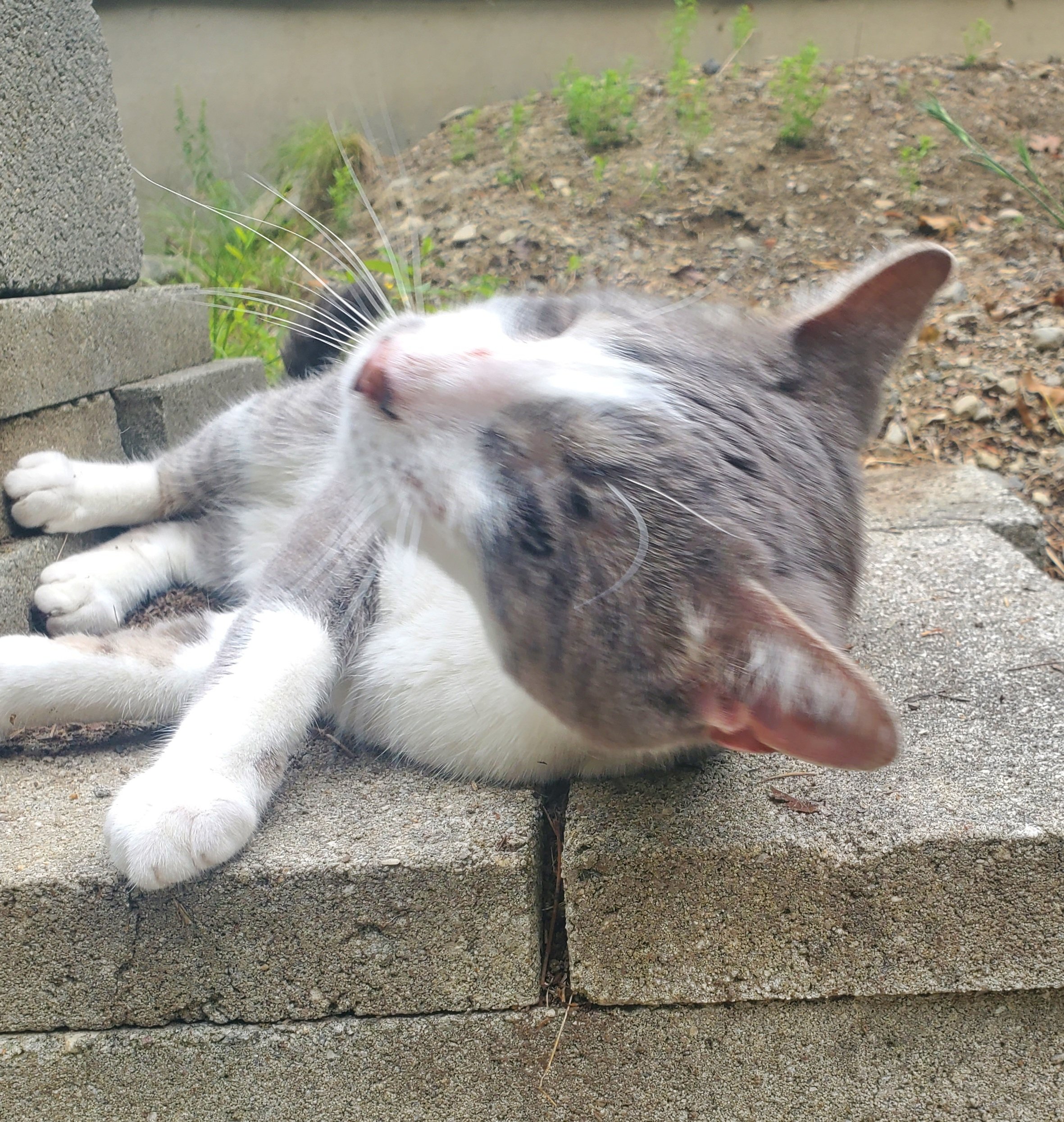Image text: @agnieszkasshoes: “Part of what makes small talk so utterly debilitating for many of us who are neurodivergent is that having to smile and lie in answer to questions like, “how are you?” is exhausting to do even once, and society makes us do it countless times a day.”
@LuckyHarmsGG: “It’s not just the lie, it’s the energy it takes to suppress the impulse to answer honestly, analyze whether the other person wants the truth, realize they almost certainly don’t, and then have to make the DECISION to lie, every single time. Over and over. Decision fatigue is real”
@agnieszkasshoes: “Yes! The constant calculations are utterly exhausting - and all under the pressure of knowing that if you get it “wrong” you will be judged for it!”
My addition: For me, in addition to this, more specifically it’s the energy to pull up that info and analyze how I am. Like I don’t know the answer to that question and that’s why it’s so annoying. Now I need to analyze my day, decide what parts mean what to me and weigh the average basically, and then decide if that’s appropriate to share/if the person really wants to hear the truth of that, then pull up my files of pre-prepared phrases for the question that fits most closely with the truth since not answering truthfully is close to impossible for me.
https://www.instagram.com/p/CvPSP-2xU4h/?igshid=MzRlODBiNWFlZA==
You could say “I feel the way I usually feel” (which is what I always say).
- It’s truthful (probably).
- It confuses the other one, giving you a second to breathe.
- It could be perceived as funny (as unconventional) by others, making you be seen positive.
I’m old, but it took a lot of time to network/socialize. I know there’s books/material to socialize now. I have learned to grey rock, and just go neutral with giving a response to most situations.
This is a learned thing. No one teached us this back in the 80s or earlier. Life isn’t easy, we learn as we get older. Yes, it’s hard, but if some random person asks about your day, just say “great, how about you?”. Put the focus back on them. Let them talk. Just listen. Oh, their grandma passed away last week? “Damn, I’m sorry to hear that. Let’s remember her legacy, and know that she lived to her fullest.”
We are all still animals at the end of the day. You can make mistakes! Learn from them, and move on. Learn as you go.
deleted by creator
Serious question from a non neurodivergent. Why don’t you tell the truth? What’s wrong with that?
Sorry, just for me to understand because I have no experience
It’s just a greeting. The proper response is “fine, and you?” The person will dig deeper if they wanted a bigger answer.
I live in Sweden. If you ask anyone here how they’re doing they will give you a detailed account of how they’re doing.
It was really confusing for me when I went to the US and I had to tell every store employee about my aching back due to the hotel having a soft bed and the cold I got from the airplane AC.
Because no one wants to be trauma dumped on, especially when they don’t have a way to escape (working).
I think it comes up to the culture you’re in and the specifics of the situation. I often hear the question asked on call in shows from the US where it seems most people say it as basically a greeting, not always pausing for a response before continuing. In my own culture we don’t ask as much and usually only of people we have a bit more of a connection to. I imagine that the cultures represented in the talk shows would pressure one into answering in a way that doesn’t hold up the conversation. This also applies when you are already exhausted, the reasoning there just being that an honest answer will prolong the conversation and probably require talking about emotions which at least to me can be exhausting on its own.
Because it will make people uncomfortable and we will be scolded or face negative consequences at work
Then the standard answer to not answer is “not too bad, and you?” <wait for answer, ignore answer>, finally: “Nice to hear, see you!”.
That’s it, it’s like “hi” “hi” “bye” “bye” but longer
Yes I know, this is the lying
In Italian goodbye is arrivederci, that literally means “see you”. You are not going to see again a random guy at a highway gas station. Still the greeting is “see you”. This is how language work. Use of certain sentences evolves. It is just an agreement between parts.
“how is it going?” “not bad, and you” “not bad” “nice” “see ya”.
The meaning of the sentences is hi hi bye bye. No lying, both know the meaning, because someone thought them. When I went to UK someone explained me, if someone want to learn how it is done where I live, I’ll explain them. The goal is to demonstrate that people don’t dislike each other. How it is done is a cultural agreement
Your comment and responses feel a bit odd. They feel a bit antagonistic even though you acknowledged this space is for autistic people.
For me, I’m like how OP stated. Every time i am asked i have to analyze my day, compare it to past days, try to figure out how I feel (try doing that while also being alexithymic), and if I am overstimulated then that adds another layer of restraint because people do not want someone to say something like, “REAL GOOD!! DID YOU KNOW I JUST FOUND OUT THAT—” and go on a tirade for 5 or 10 minutes about the new hyperfixation or interest we have.
I also have a hard time lying. I don’t see the point of it. Why lie about my day? And if the answer is non important, why ask? It makes no sense to me. And keep in mind you are using an Italian example and mine is American. Two vastly different cultures and expectations.
Sorry I looked antagonistic, I was just here to chat. I didn’t see the community I was in, really. I saw the post on all feed and I wanted to engage.
That post is how I explain things. I am a bit pedantic unfortunately. Didn’t want to hurt anyone.
Also, if it helps, I would be very happy to hear 10 minutes about a topic someone is interested in. I like passionate people. I actually feel sorry for people who don’t talk passionately about something.
You can say “it’s going”, or “ehhh”. You don’t have to lie, just don’t dump all your problems on them
If I don’t go with a standard “Fine, thanks” I’ll go with “Better than most, not as good as some”. It’s not a lie, but it’s not saying much.
Maybe you don’t understand how super creepy the deception is, and that it’s normal somehow for people to pretend to check in with each other while being not only disinterested, but offended if you actually need a real check in.
The point of a society is that we actually care about the well being of each other. We don’t fake it.
It’s worse now that advertising is in everything and friends are hooked into MLMs and religions sometimes, so any veneer of well-wishes may be a dark pattern covering an ulterior motive.
Only if one considers the meaning of the words. But language evolves. “What’s up” nowadays is just a different way to say hello.
In my language, “see you soon” is used as goodbye, even if you are not planning to see this person anymore. The Italian translation of goodbye is arrivederci i.e. “see you”. I am not going to see again 99.9% of people I said goodbye, they neither. It’s just how language evolves. Language is just an agreement on meaning of sounds
You keep telling us (and yourself) that you’re only trying to understand but you keep acting like you’re trying to fix.
Condescending as fuck tbh.
Actually I had a very good reply from @shiri that allowed me to understand, unfortunately I can’t reply them because of some lemmy issue with language settings.
I didn’t want to look condescending, it was just to chat about different experiences, about language, meaning of words. Just chatting
Sorry if I sounded otherwise
Yes we understand that but the point is that ND folks don’t automatically know which version is appropriate. Our brains tend to go through an algorithm manually each time, where NT people are much more automatic like you’re suggesting. It’s like if someone with executive function issues like in ADHD and autism told you they struggle to remember things and you tell them to “Just write it down” or “just put it in a calendar 😀” as if this is some kind of new trick they haven’t thought of. This is one of hundreds of daily examples where ND people have to manually go through the mental list of appropriate social protocol that for NT is just somehow magically instinctual.
The point of this post is to highlight one of the many ways that things are more difficult, challenging, exhausting, annoying, frustrating for ND people. This post was made in the autism community to commiserate with other ND people and discuss amongst ourselves, not to educate NT people.
But since I am procrastinating at work and have the spoons, I’ll take a stab at helping you understand. But I would appreciate if you would recognize the imposition you make coming in asking to be educated.
Imagine if for every thing you did all day you couldn’t remember how to do it or even what to do when and instead had to manually pull up a check list of steps to take to accomplish that thing, but also the pencil you used to write the list has been smudged so you can’t really read everything on the list, and when you wrote the list you misunderstood the instructions so the check list is unreliably correct. And the check list has sub points so if this then that, else this other thing. So every thing you need to do every day of your life instead of being automatically pulled up subconsciously by your brain and just done, you had to go through this list and figure out each step new each time.
For ND people, to varying extents, this is how we live for real. And it adds up in impact, but we don’t get a break. And when you’re already overwhelmed and exhausted, each time you have to pull up the checklist and figure out what to do you get worse at it. And it’s stressful and embarrassing to have to check the list each time, especially because often times you mess it up because you can’t read every line clearly or you wrote it down wrong last time.
There’s no solution, there’s no tips or tricks to help. There’s no medication to fix this problem or skills we can learn to make this problem go away. It’s how our brains are wired. We would rather live differently. But we live in societies that have chosen not to educate themselves about different neurotypes and refuse to accommodate any differences.
Instead the “weird” guy at work who is too quiet but then goes off on a coworker because they didn’t follow some stated rule off the workplace, that everyone knows don’t actually matter even though it’s never been said out loud, and why does he have such a stick up his ass, what a loser let’s be mean to him now because he’s obviously not deserving of our understanding or respect for being such a weirdo.
Or that coworker who wears headphones at her desk and is always calling out sick from work. I heard she asked to work from home, who does she think she is? how lazy can you get amirite? Something about being distracted by noise and The overhead lighting, she needs to suck it up! We all get by just fine, why can’t she? And we like chatting with each other over the cubicle walls, she needs to loosen up.
I struggle to remember things a loooot, and actually a calendar with multiple notifications really helps. It’s a trick to overcome the struggle. Same way as I struggle to write by hand, so writing with a simple text editor (emacs, vscode) in full screen mode helps me a lot. Another trick that works
I am old enough that adhd wasn’t even a thing where I come from, unfortunately.
What I am trying to say is that there is an easy algorithm to apply in this case that can be implemented:
if interlocutor.type in ("parent", "medical doctor"): return explain() else: return "not too bad, and you?"I am not saying this will help you or anyone, but this is the algorithm I use
We all know what to say. Since you didn’t understand anything I just said I’m tapping out. Please don’t comment in here again until you’ve taken more time to read and listen and observe.
Edit. I didn’t notice the community. This appeared on my “all” feed and I was just commenting as if it was any other thread.
I am sorry if someone may have felt offended.
I just wanted to casually chat, not judge, maybe help someone (who knows). I won’t be commenting further
You don’t need to apologize for an accident, man! Do you and comment as much as you want, it’s a free website. Don’t let this pickle person tell you what you can or can’t do
I apologize for my previous comment. It felt like you might be trolling and refusing to listen to explanations given to you by saying the same thing
This comment is really condescending. Not only did OP explain how it is related to biology, they even used your examples to describe how there isn’t a skill or trick to “fix it”. On top of that, you decide to give (unsolicited) advice.
This is an extremely typical experience most of us have. We try to explain something, and then we have a neurotypical ignore what was said and tell us how easy something is if we just do it THEIR WAY.
Sorry, I didn’t thought it was condiscending tone.
As a general experience if someone highlights a problem, other people replying with tricks on how they manage the same situation is not a problem. It is a way to chat as any other. That was my intention, just chat
Understood, I recognize my ignorance btw. Sorry if anyone felt offended
That’s it, it’s like “hi” “hi” “bye” “bye” but longer
Counter-proposal:
“I see you, don’t be alarmed, I don’t want to kill you”, “I see you too, don’t want to kill you either”, “Now I’m going to turn my back, and go away”, “I’m going to turn my back too, we go our separate ways”
That’s the old west version. Doable, we can work on that!
Because people get weirded out and start to exclude me when I start a 10min monologue on my emotional state and life situation instead of “I’m fine, thanks”
Try this one: “I’m fucked up, you?”
No need for a monologue, just go tit-for-tat. If they care, they’ll keep talking, if not, then no loss.
@[email protected] @[email protected] @[email protected] I try to change it up, legitimately like “Are you hydrated?”
Some of these are more confounding than “how are you?” (are you… implying my heart is not… like … red?) but asking actual questions to greet people is a really nice thing that I’d love to see more widely adopted:
deleted by creator
I have a solution for you. Move to a small city/town of south of Europe. You’ll get 15 minutes monologue as a reply to your 10 minutes monologue. If you are talking with some older lady, 20 minutes of detailed description of age-related physical struggles.
That’s how old style social networks are built there. That’s actually pretty nice, once one get used to it.
Drawback, no jobs there and you need to learn a romance language
The Truth? About how I am? How the heck am I supposed to do that? I suppose I could tell you my general level of energy. I could tell you the character of my thoughts and what sort of things caught my attention recently. I could think back to when I last had a clearly identifiable emotion, what I was thinking at the time, and if it’s still relevant. I could tell you about physical sensations in my body - do I feel tense, is my head clear, is my pulse elevated, are my ears ringing, how grounded do I feel? Or how I’m experiencing the outside world - how is the temperature, the humidity, the light, the noise? I could think about things that happened recently, or where I am now generally in life, or my worries or ideas for the future, and does any of that relate to how I am in the here and now. And eventually, maybe, after far more intimacy and far more uncertainty than you’d likely be comfortable with, I might tentatively offer some emotional label as to how I am.
Can’t vouch for its accuracy tho. I just inhabit this brain, I don’t know everything that goes on here.
So much this!
But what about a general mood. Are you able to recognize one? Like “today is a sh*tty day” or “I feel good because I’ve eaten an ice cream”. Just to understand
Sometimes. Generally no. Not without the work I outlined above.
As I understand it, people usually have an innate sense of affect - their general energy level, and valence - how positive or negative they feel. More specific emotions are basically narratives - I feel X because Y and that’s called Z. Well I can sense my affect, but my sense of valence is pretty murky most of the time. So coming up with those narratives is hard work, and I rarely have much confidence in them.
(Oh, and please don’t take this as a general guide to ‘what autism is like’ because, 1) I’m not diagnosed, and 2) ND experience is very diverse)
Your descriptions reflects my experience quite accurately (and I am diagnosed, AuDD). I usually try to be vague on purpose when answering how I am, or give non-answers (such as “I [simply] am”).
Thanks for clarifying :)
Nobody gives a shit about either of those things, which is why 99.9% of people just say “fine” or “good.” I honestly don’t even know why this is a neurodivergent thing, is a US society/culture thing.
The truth about how I am? Because they don’t care. They don’t actually want a long infodump about personal details of my life.
I just give short honest answer. If they are interested - might turn into a good conversation if not, I don’t care. But I’m also not neurodivergent - just not too much into small talk.
Imagine if you’re working as a cashier and you say to your customer, “hey, what’s up?” and then they start a ten minutes monologue about everything that’s happened to them today and how that’s made them feel. You’re just sitting there like “I’m at work, I’m just being polite, you’re holding up a line of customers, I’ll get in trouble with my boss for being so slow, etc.”. All you wanted was for the customer to say “Yeah, you?” and move on.
In the UK and America, and probably most places, saying “how are you?” or “what’s up?” is the equivalent of saying “hello” or “I would like to start a conversation with you” – it’s very rare that you actually want to know about the other person’s day. For a lot of autistic people though, we take those questions literally.
Edit to add: you can’t always assume that people don’t care about how you are. Got in trouble with my doctor for just saying “fine” when he was actually asking what is wrong with me. So it always feels like you have to make this calculation of what does the person really mean? I understand that neuro-typical people just sort of magically know the context in a way that autistic people don’t - I think it’s just a lived experience where we both have to say “I don’t understand how that is, but I trust that it’s the way you experience things” and move on.
Maybe cashiers shouldn’t ask questions they don’t want the answers to
This is a highly cultural thing. Where I live, cashier (great example) are told by the manager to not speak with the customer. The interaction is just “Hi!”, the price, “Thanks! Bye!”.
It’s just respect and politeness. I don’t practice small talks at all. People don’t care about it. It’s not their business.
To illustrate, how it is here. People don’t make friends outside secondary school or universities depending on the degree they have. I know people who still have the same friends for 50 years. People are not open.
And what’s the problem to always reply “not too bad”, as if it was a normal greeting? Without thinking, as if saying “hello”. Why is it difficult?
Again, asking to understand
@Zeth0s @Worx “not too bad” is what i do (where “too bad” implicitly means death)
unless i’m receiving a call in which my response is “what’s up?” which is ambiguously either (a) responding to a meaningless pro forma question in kind, or (b) expressing immediate interest in knowing what the call is actually about
deleted by creator
I just added an edit that addresses exactly that as you were typing :p
The truth is that neuro typical don’t even consider the context. We say something along the line to “not too bad, and you?”. We just know that doctors and parents want a longer more detailed version.
To doctor the longer version, to parents the diluited version (otherwise they get worried).
Basically this is the rule. We think of it as a synonymous of “hello”, same meaning different spelling
Then why don’t you just say hello if you meant to say hello?
No idea, even hello what does it even mean? Just an empty word to exchange the information that you recognize the other person and that you don’t dislike them.
Any combination of sounds recognized by the interlocutor is fine for the purpose.
One can say “hi”, “what’s up”, “how is it going”, “how are you doing”, “ciao”. Each of the has a combination of sounds expected as response to understand that the interlocutor doesn’t dislike you as well. For the “how is it going” “what’s up” type of greeting, response is “not too bad and you?”.
It is just how language evolves. Someone found “hi” was outdated, and moved to “what’s up”. I guess gen z moved to something else again.
deleted by creator
I used to try (I can’t always talk) and reply honestly and that made people treat me weirdly and try to take advantage.
I then tried making appropriate things up and that kinda worked but some people got angry and ended up calling me a liar and assumed a whole bunch of awful stuff on top of that, so ultimately it ended badly.
Now I just avoid people and conversation as much as I can and give vague, noncommittal and brief answers if anyone tries talking to me.
This works in the short term but anything longer than a few minutes has people assuming negative things about me, which if I have to interact with them again over time, means they can get emotional (angry) over the things they’ve assumed about me.
Life is so much nicer without involving other people.
deleted by creator
Reading these kind of things always makes me think to see a doctor… that has been way too hard for way too long… too late anyway I guess…
Now I see these interactions as functions: it’s not inviduals acting in those cases, just society going on. I stopped thinking about the person asking and now I see them like a traffic light going red and green: not a problem.
Am I still weird? Yes. Is that my problem? No.
Seeing all of these posts that I agree with in this community is really opening my eyes…
My 4 year old daughter was diagnosed with autism and I’ve been learning so much just through her and some of the readings I’ve done.
Excuse my ignorance, but is this a trait that is passed down? If so, I’m trying to figure out how did I make it this far in my life without the proper coping mechanisms.
Yes, it is genetic. If you are a woman, that makes a lot of sense as the diagnostic criteria is only now starting to catch girls more frequently, even though it’s still very flawed. Girls (and non-white people) are missed because the diagnostic criteria was developed studying young white boys exclusively. It turns out symptoms of autism are very variable and girls are much more likely to mask their symptoms and fly under the radar as just shy or quirky.
Here’s Kate Kahle on why autism is missed in girls https://youtu.be/UI6kObHls-4
Here’s a YouTube channel from a mom who was late diagnosed after her child was diagnosed https://youtu.be/zoXmrGtybts
Autism Instagram talking about how the older generations of their families are all full of autism and just don’t know it https://www.instagram.com/p/CvMwpDNxiPL/?igshid=MzRlODBiNWFlZA== https://www.instagram.com/p/Ct1VlsMxrSn/?igshid=MzRlODBiNWFlZA== https://www.instagram.com/p/CmFFZuDMjXJ/?igshid=MzRlODBiNWFlZA==
Scientific paper on heritability of autism "heritability was estimated to be 83%, suggesting that genetic factors may explain most of the risk for ASD. " https://www.ncbi.nlm.nih.gov/pmc/articles/PMC5818813/
Wow, thanks for all the information. I’m a black male and I would have to say that it’s not really talked about at all, because it’s a sign of seeming “weak”.
That YouTube video you linked hit home and explains a lot of things that my ex partner did such as not taking care of her hygiene properly, and I just couldn’t understand at all.
I’m thinking mostly that she was autistic and I’m starting to see that I demonstrate some signs, but not as much as she did. I’ve already started medication for anxiety and I can tell a world of difference in my daily interactions with people.
Haha my bad for assuming, maybe because you said daughter my brain just thought Mom idk I feel dumb. But being non-white is definitely also known for being missed for diagnosis.
And something I’ve been thinking a lot about recently is that in the medical profession “diagnosis” is reserved for people whose symptoms impact them to a very specific (and arguably arbitrary) criteria of severity. And these criteria are constantly being challenged and updated since autism and ADHD (the conditions I’m most familiar with) are still very misunderstood and research is ongoing.
But, in my opinion based on my understanding as a layperson with a special interest in psychology generally and autism and ADHD specifically, these conditions are Neurotypes that are spectrums. And so many people like myself, and perhaps yourself, may have a lot of symptoms but have managed to fly under the radar because we were able to get good enough grades in school for example, and have good enough social skills to make and maintain friendships, and get and keep jobs, all to varying extents. But inside, unbeknownst to those around us, we have been expending 10 times, 100 times the energy that most people use in order to meet those expectations put on us. And we just assumed everyone was struggling this hard with everything. But it turns out it’s not supposed to be this hard.
And that’s why you see most autistic and ADHD folks diagnosed with other mental health conditions, like anxiety, and depression in particular. Anxiety because we learn to be on high alert for when we are not behaving in the socially acceptable way so we are constantly in fight or flight mode in order to stay on top of those expectations. Depression because it’s fucking debilitating to be using so much energy to meet those expectations and constantly being on edge and constantly feeling like you’re failing or messing up. But the root cause of all that is that our brains are wired differently and society is not made for us.
I thought this was an absolutely excellent video about the Black experience with autism and getting diagnosed, still a little long half an hour, more focused on children but super valuable for adults as well. https://youtu.be/NyVfL8FZ_Vg
This is a really excellent video by Melissa Simmonds who is Black British and autistic and a parent. It’s almost an hour long and talks about being Black and autistic and the intersection of race and disability and culture and white privilege. I really appreciated learning about her perspective and the effort it took to create this presentation. I hope that it might give you a resource to find more information that you will relate with or find helpful. https://youtu.be/LW-C_MVxNEU
Here is a YouTube channel by Bri Booth where she shares her experiences as a late diagnosed autistic Black woman that I’ve only seen a little bit of but I really liked the way she expresses herself and makes her videos. https://youtube.com/@BriBooth
And here is a video I really appreciated by Jessica McCabe on her YouTube channel How to ADHD where she interviewed 13 people from 4 countries about their experiences being Black with ADHD. I don’t know if that will be as useful, although the comorbidity rate for those with autism to also have ADHD is up to like 80% so I’m hoping some of these folks might lead you to additional resources https://youtu.be/oh-3ULQJiEY
Unfortunately I couldn’t find any YouTube channels that were specifically about the experience of late diagnosed autistic Black men but if you happen to find some and remember this comment, please do let me know because I would really like to learn more.
No worries!
And so many people like myself, and perhaps yourself, may have a lot of symptoms but have managed to fly under the radar because we were able to get good enough grades in school for example, and have good enough social skills to make and maintain friendships, and get and keep jobs, all to varying extents. But inside, unbeknownst to those around us, we have been expending 10 times, 100 times the energy that most people use in order to meet those expectations put on us. And we just assumed everyone was struggling this hard with everything. But it turns out it’s not supposed to be this hard.
This makes so much sense. I do find myself struggling at times to keep certain relationships going with people I meet or sometimes even with just my friends. For example, sometimes when I get a message from a friend I end up not reading it, and saying to myself, “I’ll look at it later”, then that later becomes later and later… until it just constantly starts eating away at me every day and maybe two weeks later I might finally respond… I’m glad my friends that I do have don’t take it that I’m being rude 😅
Anxiety because we learn to be on high alert for when we are not behaving in the socially acceptable way so we are constantly in fight or flight mode in order to stay on top of those expectations.
I definitely feel this. Sometimes I have to process in my head how to respond a certain away when I’m around people in a social setting, and when I actually say it out loud, I just think to myself how stupid that must have sounded and the people around me probably think that I’m weird.
Thanks for the videos! I know what I’ll be watching tonight, and if I do run into any videos regarding Black men diagnosed with autism I’ll send them your way :)
There’s some awesome black autistic creators on Tiktok. You can find them via the hashtag #Autizzy.
This community has my fav memes. Most relatable.
Ah, so fear of “accidental lying” isn’t just me and is in fact an autistic trait?
Many people like Americans say as a trained friendly greeting “hi, how are you”. Other people like Chinese say “hi, have you eaten (had rice) yet”. They both simply need to be viewed as greetings. Neither actually want to know your full life story of your eating habits or the many bad things that may have happened to you in your day week or life.
Don’t try it here in Germany. Often people will try and test you and tell you a long story of many bad things to see if you “care”. But it is in fact missing an important cultural contex. It is not that they don’t care if you have eaten or that your wife is dieing of cancer… It is that is not what they were truly asking. It should be interpreted simply as a friendly greeting such as good morning. It is as inappropriate to responding to good morning with, “no it isn’t. It’s a terrible morning. I had diarrhea this morning and my cat died”. The lady at the grocery store doesn’t need these details and was simply being nice.
that’s the point of the post. ND folks tend to be bothered by this phenomenon. It’s not that we don’t already understand what you’re saying. Many have commented here saying what you’ve just said, and like, yeah 100% and that’s the issue. We get that it’s a cultural norm that no one actually wants a real answer to.
But autistic folks have a brain that is wired to take things at face value. We take things literally. We struggle to ignore the literal meanings of words and feel compelled to respond with our true response to that literal interpretation. We don’t want to live constantly replacing the literal meaning of words with the NT meaning. This post is one example of the seemingly constant game of NT society that does not mean the words that they say. We are tired! Say what you mean! And stop treating us like we don’t get it. We fucking get it. And we think it’s fucking stupid and don’t want to play.
Sorry. This post keeps getting me in trouble bc I get riled up. I’m not yelling at * you * I’m just yelling to the sky with my fist shaking in the air.
I understand. And that’s understandable. My comment was directed to society as a whole, and specifically non autistic people.
To the chinese greeting “Have you eaten yet?” as I understood it is fine to just answer factually what you have eaten, it could even be a decent start for small talk. Much better than “How are you?”.
I was just thinking this morning about what are we actually trying to say in America with the “How are you?” fake question so that I can try inserting that instead and I think it’s really like the Russian hello, Здравствуйте (zdrast-vyui’tye) which literally translates to “Have health!”. We’re not really asking how someone is, we are trying to say “I hope you’re well”
I could see myself being able to apply this concept in like a retail situation by saying “Hi, hope you’re having a nice day 🙂” when I come up to the counter instead of “hi how are you?”
Dan’s final comment succinctly calls out the situations which irk me the most. You asked me how I’m doing. I answered honestly… and now you’re going to judge me for that? Yeah, nah. I’d rather just not answer at all, thanks, instead of dealing with that bullcrap.
Which, over the course of time, led me to the analytical conclusion that more often than not, most people don’t actually care how – or even if – I answer at all, unless I make the “mistake” of answering honestly when I’m not feeling perfectly peachy. That’s why I almost always answer with something vaguely nonsensical when asked how I’m doing by random strangers, such as, “Howdy, howdy!” Most of them are so locked into their autopilot that they only ever hear that first syllable, and immediately think I just asked them how they’re doing… so they reflexively toss back their obligatory, “Oh, I’m fine.” Once in a blue moon, one of them will skip a beat and realize what I actually said just after their reply, making the passing interaction vaguely uncomfortable for them. Which, you know… is actually just fine by me, since that’s how I feel almost all the time.
It gets better over time. I think working on self awareness helps. If we have a better idea of how we actually feel we can at least answer honestly. It’s a little trickier when concealing the truth is required. I had a boss who often paused for a moment and said ‘I don’t know’ when people asked ‘how are you?’ It disarmed people and they tended not to ask. He made no effort to engage in small talk and that suited me. Looking back he must have been on the spectrum.
deleted by creator
I just answer honestly. I don’t have time to be a fake person.
Yeah you can answer however you want just keep it short.
“I’m having a tough week, but I’m working through it. How are you?”
My problem with this is that while I don’t like lying I also really don’t want to talk about my personal problems with someone I’m not intimately close to. So honestly, I would prefer if people who aren’t close to me don’t ask the question in the first place.
Like I’m not going to tell you that I’m having mental health issues this week and I’m about to lose my shit because everything feels overwhelming and I’m not sure it’s worth it anymore. So no I’m not really “getting through it” right now. But it also is going to be very challenging for me to lie to you right now also.
So maybe don’t presume that we have the right to that information in the first place and just say something in greeting that doesn’t require someone to divulge, honestly or not, private information about themselves.
I’m going to try to implement a “Hi, hope you’re having a nice day” instead of how are you to people I’m not close with in practicing this.
That’s fine, who even simpler.
“I’ve been better, how are you?”
Honestly society has decided on this passing thing. I understand it makes you uncomfortable but unfortunately it’s just something you have to deal with.
My suggestions aren’t meant to be a perfect thing, they are just something to say that isn’t a lie and isn’t over sharing.
Beside that you just have to lie. “Fine, you?”. Or ignore it and move on to the topic you are taking to them about. Your suggestion is a good one, if you get to go first.
Personally I don’t want to live in an even less caring society, and this social question (even if shallow) is one scrap of connection.
deleted by creator
You can be honest in this society if you are exactly average and have no opinions others would dislike. :)
It’s not that bad. Only if it’s really important to you that noone dislikes you or are bothered your opinion. Unless you have some seriously inflamatory opinions it’s not the end of the world.
Such as? What kind of opinion would you use to reply to “how is it going?” just to understand
For me, life isn’t that difficult. I work construction, and apparently that is the world where it’s ok to be weird. I answer honestly to every question I’m asked, and people either think you’re joking or just appreciate the honesty. When I get the “how are you today”, I normally respond “well I’m here, so not great”, and that’s totally fine
Agreed, I always love when I get to work with construction guys because they are some of the realest people I get to meet.
Hey there, how’s it going?
“Good!” - feeling alright
“Hanging in there” - feeling a little rough but pulling through
“It’s going” - bad/tired (existential)
Haha how is this so universal. Definitely have used these scripts.
since in most other languages people don’t ask “how are you” would this problem exist in other languages?
I would love to learn more about autistic experiences in other countries outside America. What are the social protocols that they struggle with?
Now I understand why I don’t have a problem with small talk. The people I make small talk with aren’t assholes!
What do you mean?!
Whenever I make small talk with my friends or family, I always tell the truth and they never get mad at me for it. If they ask me how my day was, and I say “not great”, they’re more than willing to listen as I tell them why I had a bad day. I never have to lie and say everything’s alright.
Oh that’s great. You’re lucky to have such kind and understanding family members and friends! :)
Also, thanks for the explanation. I totally didn’t get what you meant at first.


















